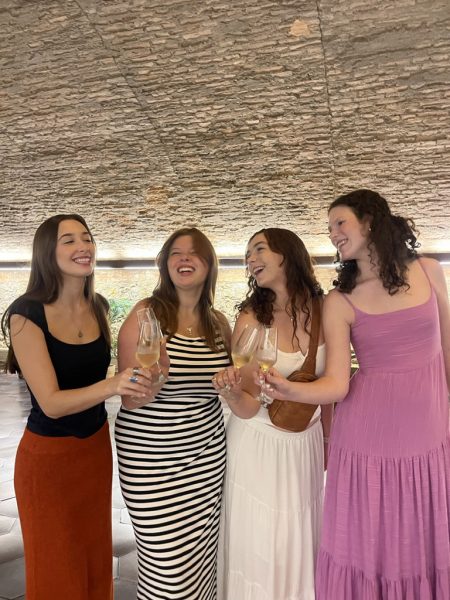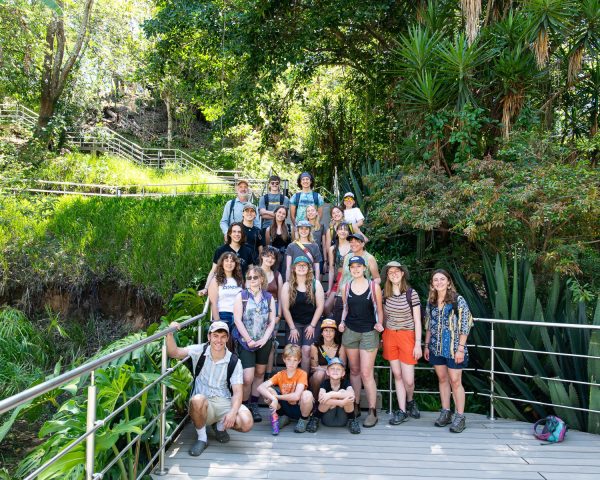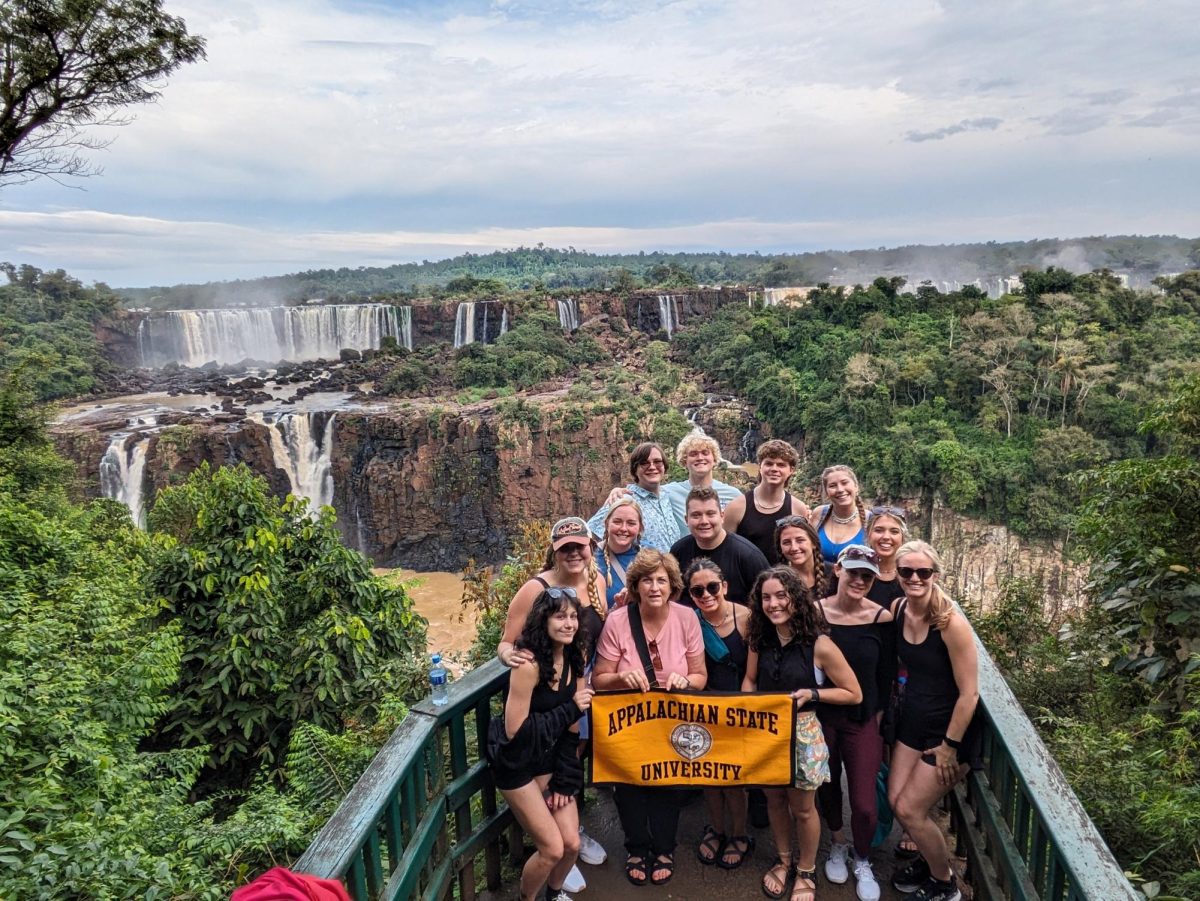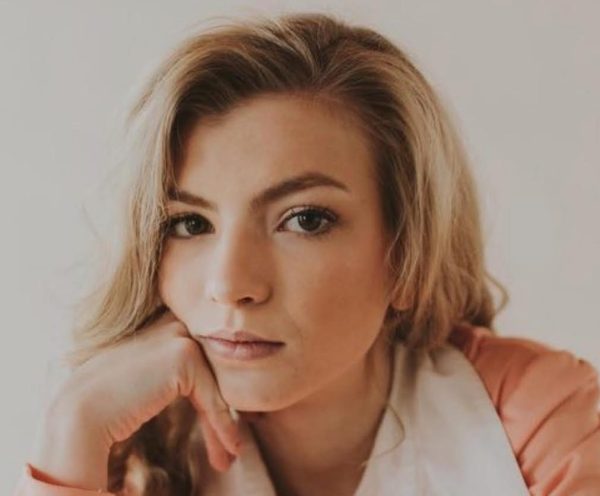“I have been operating most my life in a what’s next mindset,” wrote Grayson Russell in his journal.
His journal is not very long, only about six pages typed in double space. However, it is an edited, condensed version of the consistent stream of notes, conversations and observations he experienced on his two-week-long trip in Brazil. The pages are packed with significant moments and ideas the App State junior underwent, a testament to the impact the trip had on changing his “what’s next mindset.”
“It was definitely the best two weeks of my life, like pure just happiness and learning things and experiencing things,” Russell said.
This year’s theme for Hispanic Heritage Month, according to the National Archives, is “Pioneers of Change: Shaping the Future Together.” This summer, App State students and faculty visited countries across five continents on faculty-led programs. Those who traveled to countries in South America and to Spain through these programs were able to see the work of Hispanic and Latino pioneers of change first-hand.
Marty Meznar, the associate dean for global and civic engagement at the Walker College of Business, led the trip to Brazil and said he has led study abroad trips almost since he came to App State 17 years ago. Born in Brazil, Meznar said the experience of showing students his home country is an exciting one.
“It’s a way to broaden their horizons in a way that, without going, you couldn’t do,” Meznar said. “It’s especially cool for me when we have students that have never traveled outside the U.S., that maybe have never been on a plane, and it’s just almost mind-blowing.”
For many of the faculty-led programs, students are required to meet on campus in Boone before or after their trip to discuss the course material. The focus of Meznar’s trip was energy, ecology and environment.
Will Byrd, a graduate student in business administration, participated in Meznar’s course. He said the difference in studying this topic in Brazil, rather than in a Boone classroom, could not be overstated, especially when it came to visiting the Itaipu Hydroelectric Dam.
“The way in which they generated power was in tune with nature, which is kind of the vibe you get when you go to Brazil,” Byrd said. “There’s a larger emphasis placed on nature than maybe even in the U.S.”
The dam, located on the Paraná River between Brazil and Paraguay provides power to all of Paraguay.

Across the Atlantic Ocean, junior creative advertising major Ella Marion said she and her group spent time studying the advertising and public relations roles in the Spanish wine industry. Marion echoed Byrd and Meznar, saying she felt a deeper understanding of the course objectives was obtained simply through being immersed in Spanish culture.
“You’re there in Spain drinking Spanish wine,” Marion said. “You can’t have the same experience at all if you’re sitting in a classroom, even if you’re in a wine tasting class.”
During their time in Barcelona, Marion said the class visited Codorníu, a vineyard that is over 400 years old, according to its website, and Mas Geli Pals, a younger vineyard. Through this, Marion and her class were able to analyze the industry’s evolving advertising and public relations tactics in a new and developed winery.
Rick Rheingans, a professor in the Department of Sustainable Development, wrote in an email that he designs his faculty-led program to Costa Rica around developed partnerships with Costa Rican organizations. Each of these organizations has worked on conservation and sustainable practices in Costa Rica for many years, Rheingans wrote.
“Students get to spend time with young Costa Rican conservation professionals from these organizations which adds a lot to the experience for our App students,” Rheingans wrote.

While it is important to make sure the course objectives are met during the time abroad, there is nothing wrong with indulging students with some touristy sight-seeing as well, Meznar said.
Meznar said one of his favorite parts of the trip was going to Paraty, a coastal town located on Costa Verde, and learning about its history as a center for the importation of enslaved people.
One of Russell’s favorite moments from the trip was during a trip to the beach in Rio de Janeiro, when he said he plucked up the courage to wear a speedo and play volleyball with some locals.
Russell’s journal documents these fleeting, high-energy experiences as well as the somber realizations he had about the challenges Brazilian communities face.
But, it also clearly reflects the character arc Russell experienced throughout his two-week-long adventure.
“I now look forward to working, and the subsequent paycheck that comes with it, not for my initial reason of being done with school but now so I can focus on learning about different ways of life and broadening my experiences,” Russell wrote.


